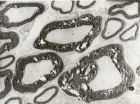(Press-News.org) Analysis of surveys of more than 3.5 million American men and women, administered at some 20,000 health centers across the country — believed to be the largest analysis of its kind ever performed — found that married people, regardless of age, sex, or even cardiovascular risk factors, had significantly less chances of having any kind of cardiovascular disease than those who were single, divorced or widowed.
Among the study's key findings, to be presented March 29 in Washington, DC, at the annual scientific sessions of the American College of Cardiology:
Being married carried a 5 percent lower risk of having any cardiovascular disease than being single
Widowed and divorced people were, respectively, 3 percent and 5 percent more likely to suffer from any kind of cardiovascular disease, including peripheral artery disease, cerebrovascular disease, abdominal aortic aneurysm, and coronary artery disease
Younger married people, those under age 50, had a 12 percent lower odds of disease than younger single people
Older couples, between the ages of 51 and 60, had 7 percent reduced risk, while those above 60 had approximately 4 percent lower odds of disease
For risk factors of cardiovascular disease, smoking was highest among divorced people (at 31 percent) and lowest in widowed people (at 22 percent); and obesity was most common in single and divorced people (at 31 percent and 30 percent, respectively). Hypertension, diabetes and being sedentary were most common in widowed people (at 77 percent, 13 percent, and 41 percent, respectively.)
"Our survey results clearly show that when it comes to cardiovascular disease, marital status does indeed matter," says senior study investigator and NYU Langone cardiologist Jeffrey Berger, MD, MS, director of cardiovascular thrombosis programs and an assistant professor in the Department of Medicine, Leon H. Charney Division of Cardiology. Berger adds that his team's study results, which involved study participants whose age ranged from 21 to 99, suggest that clinicians need to pay attention to marital status when evaluating patients for heart problems. "If one of my patients is recently widowed or divorced, I'm increasingly vigilant about examining that patient for signs of any type of cardiovascular disease and depression," he says.
Dr. Berger says more research is needed to better understand the precise reasons why marital status affects risk of heart disease, but suggested that a pairing such as marriage offers an emotional and physical support system during times of illness and general health. "Married people can look after each other, making sure their spouse eats healthy, exercises regularly, and takes medication as prescribed," he says. "A spouse can also help keep doctors' appointments and provide transportation, making for easier access to health care services."
One of the other important results to come out of the research, according to lead study investigator and NYU Langone cardiology fellow Carlos L. Alviar, MD, is offering clinicians better insight into their patients, particularly how marital status can change their risk of heart disease at different stages in life, from when they get married, when they divorce or become widowed.
Dr. Alviar also points out that the study, an analysis of health center heart-related survey data collected from 2004 through 2008, is particularly important because it is large enough to offer reliable and statistically valid results on marital status' link to disease – and accounted for other known predictors of heart disease. "Patients across the country were monitored through physical exams and imaging tests for different kinds of cardiovascular disease, but also for such risk factors as blood pressure, obesity, smoking history, family history of disease, lack of exercise, blood cholesterol levels, and diabetes," Alviar says. "Most other studies were much smaller in scope, did not look at different age groups, and could not separate marital status and overall disease risk from so many confounding risk factors."
The average age of study participants was 64, of whom 63 percent were female.
Drs. Berger and Alviar plan further analyses to differentiate marital status and reduced risk by race. Although more than 80 percent of study participants were white, the researchers say sufficiently large enough numbers of African-Americans (110,190), Asians (71,090), Hispanics (85,308), and Native Americans (103,081) participated for them to draw specific conclusions based on race and ethnic origin. They also plan to investigate the role of other socio-economic factors, such as education, income, and employment status and how they impact the association between marital status and risk of cardiovascular disease.
INFORMATION:
Editor's Note: This poster presentation at the American College of Cardiology meeting, #153 is titled "Association of Marital Status with Vascular Disease in Different Arterial Territories: a Population-Based Study of Over 3.5 Million Subjects" and will be on display from 9:30 a.m. to 12:30 p.m., Saturday, March 29, in Hall C at the Washington Convention Center, in Washington, DC.
Funding support for the statistical analysis, which took over a year to perform, was provided by NYU Langone. In addition to Drs. Berger and Alviar, other NYU Langone researchers involved in this study are Caron Rockman, MD; Yu Guo, MA; and Mark Adelman, MD.
For more information, go to:
http://www.med.nyu.edu/biosketch/bergej03
http://accscientificsession.cardiosource.org/ACC.aspx?WT.mc_id=A14255
About NYU Langone Medical Center:
NYU Langone Medical Center, a world-class, patient-centered, integrated academic medical center, is one of the nation's premier centers for excellence in clinical care, biomedical research, and medical education. Located in the heart of Manhattan, NYU Langone is composed of four hospitals—Tisch Hospital, its flagship acute care facility; Rusk Rehabilitation; the Hospital for Joint Diseases, the Medical Center's dedicated inpatient orthopaedic hospital; and Hassenfeld Children's Hospital, a comprehensive pediatric hospital supporting a full array of children's health services across the Medical Center—plus the NYU School of Medicine, which since 1841 has trained thousands of physicians and scientists who have helped to shape the course of medical history. The Medical Center's tri-fold mission to serve, teach, and discover is achieved 365 days a year through the seamless integration of a culture devoted to excellence in patient care, education, and research. For more information, go to http://www.NYULMC.org, and interact with us on Facebook, Twitter, and YouTube.
Media Inquiries:
Allison Clair
212.404.3753
allison.clair@nyumc.org
Married people less likely to have cardiovascular problems
Survey of 3.5 million Americans shows marital status affects risk of heart disease
2014-03-28
ELSE PRESS RELEASES FROM THIS DATE:
Optimal duration of percutaneous microballoon compression for trigeminal nerve injury
2014-03-28
Percutaneous microballoon compression of the trigeminal ganglion is a brand new operative technique for the treatment of trigeminal neuralgia. However, it is unclear how the procedure mediates pain relief, and there are no standardized criteria, such as compression pressure, compression time or balloon shape, for the procedure. In particular, the links between compression duration and postoperative complications and pain recurrence are still under debate. An extended duration of compression would cause irreversible injury and drastic demyelination, and paresthesia and numbness ...
Concerning number of kids have elevated cholesterol
2014-03-28
WASHINGTON (March 28, 2014) — Roughly one out of three kids screened for high cholesterol between the ages of 9 and 11 has borderline or high cholesterol, potentially placing them at greater risk for future cardiovascular disease, according to research to be presented at the American College of Cardiology's 63rd Annual Scientific Session.
In one of the largest studies of outpatient pediatric clinic visits to date, researchers examined the medical records of 12,712 children who had screening for cholesterol levels as part of a routine physical exam within the Texas Children's ...
Number of babies mom has may play role in future cardiovascular health
2014-03-28
WASHINGTON (March 28, 2014) — Women who give birth to four or more children are much more likely to have evidence of plaque in their heart or thickening of their arteries – early signs of cardiovascular disease – compared with those having fewer pregnancies, according to research to be presented at the American College of Cardiology's 63rd Annual Scientific Session.
While earlier studies have shown an association between several aspects of pregnancy – physiological changes, complications, number of pregnancies – and future heart disease risk, many questions remain about ...
Eating fruits and vegetables linked to healthier arteries later in life
2014-03-28
WASHINGTON (March 28, 2014) — Women who ate a diet high in fresh fruits and vegetables as young adults were much less likely to have plaque build-up in their arteries 20 years later compared with those who consumed lower amounts of these foods, according to research to be presented at the American College of Cardiology's 63rd Annual Scientific Session. This new finding reinforces the importance of developing healthy eating habits early in life.
Previous studies have found that middle-aged adults whose diet consists of a high proportion of fruits and vegetables are less ...
TV linked to poor snacking habits, cardiovascular risk in middle schoolers
2014-03-28
WASHINGTON (March 28, 2014) — Middle school kids who park themselves in front of the TV for two hours or more each day are more likely to consume junk food and have risk factors for cardiovascular disease, even compared to those who spend an equal amount of time on the computer or playing video games, according to research to be presented at the American College of Cardiology's 63rd Annual Scientific Session.
"While too much of both types of screen time encourages sedentary behavior, our study suggests high TV time in particular is associated with poorer food choices ...
Marriage linked to lower heart risks in study of 3.5+ million adults
2014-03-28
WASHINGTON (March 28, 2014) — People who are married have lower rates of several cardiovascular diseases compared with those who are single, divorced or widowed, according to research to be presented at the American College of Cardiology's 63rd Annual Scientific Session. The relationship between marriage and lower odds of vascular diseases is especially pronounced before age 50.
"These findings certainly shouldn't drive people to get married, but it's important to know that decisions regarding who one is with, why, and why not may have important implications for vascular ...
Revolutionary solar cells double as lasers
2014-03-28
Commercial silicon-based solar cells - such as those seen on the roofs of houses across the country - operate at about 20% efficiency for converting the Sun's rays into electrical energy. It's taken over 20 years to achieve that rate of efficiency.
A relatively new type of solar cell based on a perovskite material - named for scientist Lev Perovski, who first discovered materials with this structure in the Ural Mountains in the 19th century - was recently pioneered by an Oxford research team led by Professor Henry Snaith.
Perovskite solar cells, the source of huge excitement ...
Research suggests autumn is ending later in the northern hemisphere
2014-03-28
A study by the University of Southampton suggests that on average the end of Autumn is taking place later in the year and Spring is starting slightly earlier.
A team of researchers examined satellite imagery covering the northern hemisphere over a 25 year period (1982 - 2006), and looked for any seasonal changes in vegetation by making a measure of its 'greenness'. They examined in detail, at daily intervals, the growth cycle of the vegetation – identifying physical changes such as leaf cover, colour and growth.
The project was led by University of Southampton Professor ...
UEA research shows gastric surgery halves risk of heart attack in obese people
2014-03-28
Obese people who have stomach surgery to help them lose weight will halve their risk of heart attack according to new research from a team of doctors at the University of East Anglia, University of Manchester and University of Aberdeen.
The procedures, known as bariatric surgery, involve techniques such as gastric banding, which are available on the National Health Service (NHS) in the UK for selected patients.
New research published today in the International Journal of Cardiology reviewed data from 14 studies involving more than 29,000 patients who underwent bariatric ...
Great earthquakes, water under pressure, high risk
2014-03-28
The largest earthquakes occur where oceanic plates move beneath continents. Obviously, water trapped in the boundary between both plates has a dominant influence on the earthquake rupture process. Analyzing the great Chile earthquake of February, 27th, 2010, a group of scientists from the GFZ German Research Centre for Geosciences and from Liverpool University found that the water pressure in the pores of the rocks making up the plate boundary zone takes the key role (Nature Geoscience, 28.03.2014).
The stress build-up before an earthquake and the magnitude of subsequent ...
LAST 30 PRESS RELEASES:
$3 million NIH grant funds national study of Medicare Advantage’s benefit expansion into social supports
Amplified Sciences achieves CAP accreditation for cutting-edge diagnostic lab
Fred Hutch announces 12 recipients of the annual Harold M. Weintraub Graduate Student Award
Native forest litter helps rebuild soil life in post-mining landscapes
Mountain soils in arid regions may emit more greenhouse gas as climate shifts, new study finds
Pairing biochar with other soil amendments could unlock stronger gains in soil health
Why do we get a skip in our step when we’re happy? Thank dopamine
UC Irvine scientists uncover cellular mechanism behind muscle repair
Platform to map living brain noninvasively takes next big step
Stress-testing the Cascadia Subduction Zone reveals variability that could impact how earthquakes spread
We may be underestimating the true carbon cost of northern wildfires
Blood test predicts which bladder cancer patients may safely skip surgery
Kennesaw State's Vijay Anand honored as National Academy of Inventors Senior Member
Recovery from whaling reveals the role of age in Humpback reproduction
Can the canny tick help prevent disease like MS and cancer?
Newcomer children show lower rates of emergency department use for non‑urgent conditions, study finds
Cognitive and neuropsychiatric function in former American football players
From trash to climate tech: rubber gloves find new life as carbon capturers materials
A step towards needed treatments for hantaviruses in new molecular map
Boys are more motivated, while girls are more compassionate?
Study identifies opposing roles for IL6 and IL6R in long-term mortality
AI accurately spots medical disorder from privacy-conscious hand images
Transient Pauli blocking for broadband ultrafast optical switching
Political polarization can spur CO2 emissions, stymie climate action
Researchers develop new strategy for improving inverted perovskite solar cells
Yes! The role of YAP and CTGF as potential therapeutic targets for preventing severe liver disease
Pancreatic cancer may begin hiding from the immune system earlier than we thought
Robotic wing inspired by nature delivers leap in underwater stability
A clinical reveals that aniridia causes a progressive loss of corneal sensitivity
Fossil amber reveals the secret lives of Cretaceous ants
[Press-News.org] Married people less likely to have cardiovascular problemsSurvey of 3.5 million Americans shows marital status affects risk of heart disease


